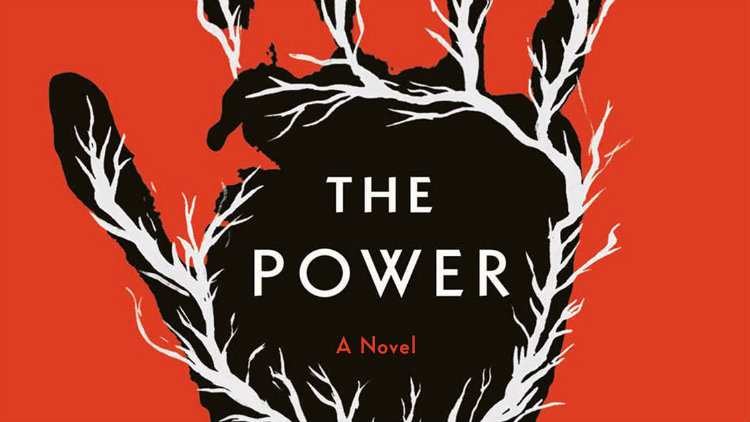Book Review | The Power and the Eighth
One word I’m not hearing or seeing an awful lot of in the lead-up to the Referendum on the Eighth Amendment is “power”, yet it’s precisely what is at stake for Ireland’s women. I’m a big believer in the value that literature can add to social discourse, and in the light it can shed on complex issues. What better way, then, to approach the campaign to repeal the Eighth than from a literary angle by looking at Naomi Alderman’s award-winning novel The Power?
In this novel, girls and young women all over the world discover a new organ across their collarbones – the skein – that allows them to conduct electricity. It has developed over the decades since the Second World War due to a chemical residue in the world’s oceans and water supplies. Thus, a chemical weapon developed for that almost exclusively male pursuit, war, comes back to haunt men in nightmarishly ironic ways.
The several intertwined narratives include Allie, a teenage victim of repeated sexual assault who becomes a new messiah, her symbol a hand with a lightning bolt in it. Roxy is the tough young daughter of a London mob boss, who suddenly finds herself stronger and more important than all her brothers. There are also Margot, an on-the-up politician advocating for girls to harness their new power, and Tunde, a journalist documenting the blossoming power of women around the world.

At a stroke, women become the physically dominant sex, some attaining more advanced powers such as healing and mind-reading. Entire religions are reinterpreted to accommodate the shift in power, Mary supplanting Jesus in Christian iconography, for example. Younger women can even “awaken” the power in older ones in a neat generational interplay, showing that empowering women anywhere can lead to their empowerment everywhere. This is a playful rebuttal of the male notion that women can sometimes be their own worst enemy when it comes to social status and advancement.
The world’s men are suitably terrified and measures are put in place to protect boys from spark-happy girls; rubber supplants dogs as man’s best friend. One cogent line that kept coming to mind is courtesy of Ani, played by Rachel McAdams, from True Detective season two: “The fundamental difference between the sexes is that one of them can kill the other with their bare hands.” Now that they dominate the physical realm, women start to take control of the social, political, and economic ones as well. The feel throughout the book is something akin to a slave uprising, and from a male perspective it’s an exquisitely uncomfortable read, which is to say: a necessary read.
All of which got me thinking: is this basically what it’s like to be a woman? To be this vulnerable a lot of the time? To have to be this exhaustingly aware at every moment? It’s something most men take for granted every single day. Most men won’t think twice about walking home alone late at night; most women won’t even dream of it.
Much like Alderman’s The Power, the Referendum on the Eighth is all about power and women’s bodies, both the power in them, and power over them. There is a longstanding, nebulous, and irrational male fear of the female body, which I think explains in some measure society’s desire to control it. The Power takes a fresh and electrifying look at this ancient phenomenon, and it melds well with the current debate on the Eighth Amendment.

Why this fear exists at all, I cannot purport to know, though something tells me it is precisely the ability to create new life that inspires such trembling awe. Lightning terrifies us and we have tamed it, made it into electricity; the female body terrifies us so we have turned it into an incubator. Note how all of the No campaign’s posters only ever show a foetus in the womb, and not the whole woman to whom the womb belongs. To the No side of the debate, women are not human beings, they are vessels.
Most men would baulk at the idea that the state should intervene in what we do with our own bodies, be it tattoos, piercings, smoking, drinking, or medical procedures. Yet when it comes to women, society has been happy for decades to dictate the shalls and shall nots. Enough is enough. It’s time that every woman has complete control over her own body and what happens to it. The Power deals with this issue of control and power through the prism of a refreshing and disturbing paradigm shift. The change is so cataclysmic that the entire world and everything we think we know about it needs to be reimagined.
As Anne Enright puts it in a piece for the Guardian, there are worse places to start than in a subtle but radical change in language. A woman should no longer be considered “pregnant” but “impregnated”, and an “unwanted pregnancy” should henceforth be referred to as a “pregnancy without consent”. These updated terms go some way to comprehending the agency often denied to women who are impregnated, and to reflecting the status of pregnancy as something that may be willed or not.
Naomi Alderman’s The Power should be required reading for everyone, but especially for young men. It is the epitome of a committed novel: the author has a cause and that cause is equality. Quite apart from the important and contentious issues with which it engages, it is a brilliant and thoroughly enjoyable read, well-paced and written with great clarity and purpose, and not without some excellent dashes of humour. The several narratives complement each other very well, although I was a little annoyed at how one was left hanging without closure. Not a patch, I’m sure, on the frustration that Irish women feel at not having control over their own bodies.

